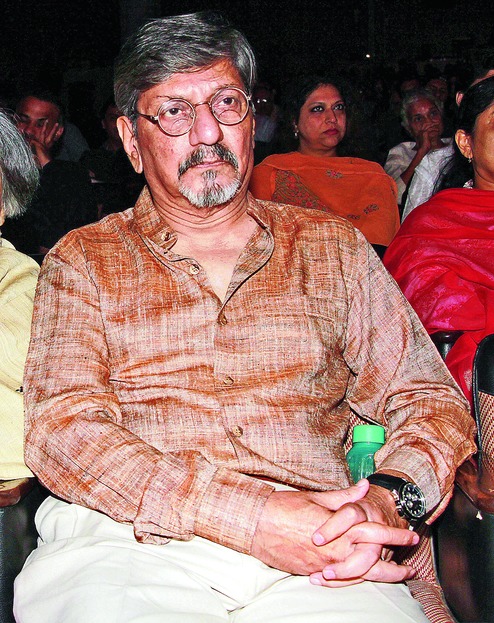
April 17: The Supreme Court issued notices to the Centre and the Central Board of Film Certification (CBFC) to respond to a public interest litigation filed by actor-director Amol Palekar challenging the censor board to stop what he refers to as the "pre-censorship" of films.
In his petition, Palekar, who epitomised the EveryMan of the 1970s in films like Gol Maal, Chitchor, Chhoti Si Baat and Rajnigandha, has challenged the provisions of the existing Cinematograph Act of 1952, claiming that "pre-censorship" of films has no place in the era of Internet and social media.
"After about 47 years, the constitutional validity of provisions of this Act is being challenged. Usually producers or directors approach the judiciary to seek relief against a particular film that's denied certification. No one finds it necessary to hit the broader issues beyond their own specific and immediate relief," Palekar told The Telegraph on Monday after the Supreme Court directive.
According to The Cinematograph Act of 1952, films in India, including films shows on television, can be publicly exhibited only after they are certified by the CBFC. Over the last few years, the CBFC has come under fire for what has often been deemed "brutal and biased" censorship of films, particularly after Bollywood producer Pahlaj Nihalani took over the reins as its chairman in January 2015.
Palekar's PIL - details of which the actor-director shared with this newspaper on Monday - states that "the power of certification as a means of pre-censorship has been subjected to large-scale abuse owing to ambiguity and lack of clear guidelines of how the power has to be exercised".
Palekar's petition said: "Today modern technology makes dissemination of information available in real time through a variety of media, many of which are either not regulated or if regulated, not subjected to pre-censorship."
In his petition, Palekar has cited recent examples of the CBFC banning Lipstick Under My Burkha for being "lady-oriented" and demanding that a dialogue containing "Mann ki baat" be removed from the film Sameer because Mann Ki Baat is the name of Prime Minister Narendra Modi's monthly radio address to the country.
Palekar, whose name has been doing the rounds for many years as a probable contender for the CBFC chief's post, has petitioned for a number of changes, including that the Supreme Court "declare the present CBFC incompetent to carry on functions under the said Act" and to "increase the categories for certification". The PIL also points out that the present censor board has no member from a legal background, "which results in it repeatedly violating a filmmaker's right to speech and expression".
Palekar, who has directed the Hindi film Paheli with Shah Rukh Khan and Rani Mukerji and a host of Marathi films, has also asked for action on the recommendations made by eminent director Shyam Benegal, who submitted his interim report to the Centre in June 2016, suggesting that films in India be "certified" and not censored. The committee led by Benegal, constituted by the information and broadcasting ministry, had recommended a new "Adult with Caution" category and two new classifications under the "Universal under Adult Supervision or U/A rating" - U/A 12+ and U/A 15+.
The petition mainly wanted quashing of Section 4(1)(iii) of the Cinematograph Act as unconstitutional since it empowers CBFC to impose pre-censorship and the power of the government to appoint members of the board and its various committees and the Film Certification Appellate Tribunal (FCAT), without specifying any qualifications, leading to "subjective, erratic, arbitrary interpretation" of the Act.
Over the last few years, the censor board has clamped down on many a film, asking for drastic cuts or even going to the extent of banning a film. In June last year, it sought to stop the release of Udta Punjab, starring Shahid Kapoor, Alia Bhatt and Kareena Kapoor Khan, but the film released after the high court cleared it following a petition from its producer Anurag Kashyap.
Currently in the eye of the storm is Raveena Tandon's Maatr. The Ashtar Sayed-directed film, that focuses on a mother taking revenge after her daughter is raped, has been refused certification by the CBFC, citing "gruesome rape scenes" and "graphic content", leaving it open for the makers to approach a revising committee in the race to its release on April 21.











